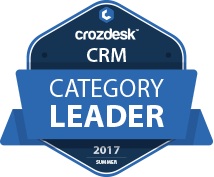Defining Complete CRM
Custom Objects: CRM Your Way
When it comes to using your CRM, you need the flexibility to design your information storage the way you need it. Custom fields are one thing (we offer unlimited fields), but the next level is the use of custom objects.

This Is A Big Deal
Data matters. It's what keeps your sales team on top of leads, and your marketing team able to pinpoint messaging when and where it is needed most. If your CRM doesn't have built-in flexibility to store and use that data, it will cost you time and money to try to make it fit into the way you do business.
GreenRope was built around the principles of "all in one". Unlike many other "all in one" CRM platforms, we offer custom objects as a way to manage your information how you need it. Accept no substitutes - a CRM without custom objects is not a CRM.
To better illustrate how custom objects work, we will use real estate as an example. Imagine you're a real estate agent with clients who have purchased homes with your help. This is just an example, but once you see how custom objects work, you will see how you can apply this capability to your own business.
What's The Difference Between a Field and an Object?
Your data can be stored in ways that connects information to contacts and companies. Sometimes that data is in a one-to-one relationship, like "I have helped Brenda purchase 3 homes". A custom field called "Number of Homes" could store the number 3 for Brenda.

But what if you wanted to store more information about each home? This historical data would help you remember the details of previous transactions and would organize data you could use better serve your clients in the future. To do this, you create custom objects to define what you want to store. For each home, you might want to know square footage, number of bedrooms, lot size, amenities, or other attributes. Brenda could have any number of homes in your CRM, so you would create a separate object for each home and attach it to Brenda's contact record in your CRM.

This kind of flexibility is critical to management of relevant data in your CRM. With GreenRope, custom objects are easy to design and use every day, simplifying the way you manage your relationships and all the data that goes with them.








































